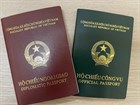In order to meet the requirements of financial and accounting integration as well as to enhance the quality of accounting work as a tool in the management of finance, capital, and assets of the state and enterprises, and as a management and oversight tool of the State, the Law on Accounting 2015 introduces several important changes as follows:
Additional Prohibited Acts
In addition to 09 prohibited acts stipulated in Article 14 of the Accounting Law 2003, the Accounting Law 2015 has supplemented several prohibited acts to ensure all fraudulent and wrongful acts in the accounting field are covered, while also providing a legal basis for handling violations such as:
- Renting, borrowing, leasing, or lending accountant certificates, Accounting Service Practice Registration Certificates in any form.- Maintaining two or more financial accounting book systems or providing and disclosing financial reports with inconsistent data in the same accounting period. The law prohibits accounting units from maintaining multiple accounting book systems; however, according to the regulations, it only prohibits maintaining two or more financial accounting book systems, but not management accounting.- Providing accounting services without an Accounting Service Business Eligibility Certificate or practicing accounting services without meeting the conditions specified in this Law.- Hiring individuals or organizations that do not meet the practicing or business conditions for providing accounting services to one's unit.

Detailed Regulations on Electronic Vouchers
Electronic vouchers are considered accounting vouchers when they contain the information specified in Article 16 of the Accounting Law 2015 and are presented in electronic data form, encrypted, and unchangeable during transmission over computer networks, telecommunication networks, or on data carriers such as magnetic tapes, magnetic disks, and various payment cards.
Electronic vouchers must ensure data security and integrity during usage and storage; they must be managed and checked to prevent misuse, exploitation, intrusion, copying, theft, or nonconforming use. Electronic vouchers are to be managed as original accounting documents that are created, sent, or received but must have the appropriate devices for use.
When paper vouchers are converted to electronic vouchers for transactions or payments, or vice versa, the electronic vouchers are valid for economic and financial operations, while the paper vouchers are valid only for record-keeping, tracking, and checking, and have no transactional or payment validity.
Supplementary Regulations on State Financial Statements
The Accounting Law 2015 supplements regulations on State Financial Statements in Article 30. This is a new content in the national economic accounting system, providing information on assets, liabilities, expenses, results of operations; receivables, surplus, deficits, and cash flows of the nation, each locality, and unit. It enables the competent state agencies to grasp fluctuations in national capital and assets, contributing to efficient resource management and publicizing, and transparency of State financial information. The preparation and submission of State financial statements to the National Assembly and People's Councils is carried out concurrently with the state budget finalization as stipulated by the State Budget Law.

Specific Regulations on Accounting Service Business Enterprises
Accounting service business enterprises can be established in the following types:
- Limited liability companies with two or more members;- Partnerships;- Private enterprises.
Enterprises are only allowed to provide accounting services if they meet the business conditions specified in this Law and are granted an Accounting Service Business Eligibility Certificate. Accounting service business enterprises are not allowed to contribute capital to establish other accounting service business enterprises, except in cases of capital contribution with foreign accounting service business enterprises to establish accounting service business enterprises in Vietnam.
Additionally, the Law supplements regulations on conditions, dossiers, and time limits for granting Accounting Service Business Eligibility Certificates, ensuring transparency and convenience for organizations and individuals performing administrative procedures. It clearly stipulates the responsibilities of practicing accountants, enterprises, and accounting service business households.
 Article table of contents
Article table of contents









